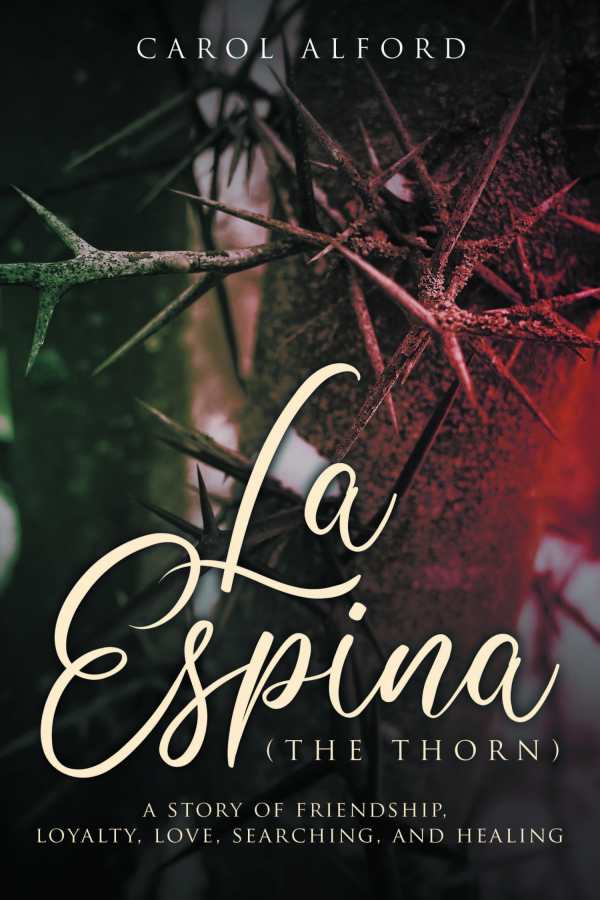La Espina (The Thorn)
A Story of Friendship, Loyalty, Love, Searching, and Healing
A grieving woman seeks the truth about her origins abroad in the warm novel La Espina (The Thorn).
Unwavering bonds exist among family members and friends in Carol Alford’s novel La Espina (The Thorn), in which a woman pursues the traces of her birth mother across Mexico.
Adopted by loving and attentive parents, Joanna never had much of a reason to wonder who or where her birth mother was. When her mother dies in an accident, Joanna feels pulled to seek out the mother she never knew. Encouraged by her friends and guided by her maternal grandmother’s last contact with Dixie, her birth mother, Joanna decides to drive to Mexico with her friend Amy. She begins her search in Nuevo Vallarta.
The support that Joanna receives from three friends seems infinite. With her since childhood, they become as invested in Joanna’s search as she is. Their differing personalities result in dynamism, and their separate interactions with Joanna are quirky. The rest of the supporting cast is too voluminous and distracting; some are said to be important to Joanna’s growth, though the roles they play prove less significant than suggested.
The descriptions of Mexican features ranging from beaches (early in the trip, Amy and Joanna stand on one, admiring dolphins and “several proud cranes and egrets reaching to stab their beaks into the shallow ponds” near sunset) to food carts (near which “artists displayed their watercolors of local scenes [and] a youthful couple played wooden flutes”) are bright and detailed. However, they are also filtered through Joanna’s outsider’s perspective in a way that compromises their realism. To Joanna, Mexico is exciting and beautiful; she takes no note of that which is uncomfortable and ugly. And she navigates this unfamiliar place with relative ease, straining credulity.
The story’s tension revolves around people’s relationships. There’s distance between Joanna and her father, and there’s an underlying sense of competition between Joanna and one of her friends. Enigmatic Dixie, meanwhile, is revealed in stages, and most often through her old writings; she shares her reasons for giving Joanna up on paper. These complications contrast well with the idyllic setting and Joanna’s happier experiences therein.
But while most of the novel moves at a steady pace, its ending is rushed through. Months’ worth of critical relationship development and monumental events are crammed into a short space. Further, the book’s integration of Spanish language terms into its pages is inconsistent; there are translations in some instances and no explanations in others. Further, the random use of the term “gringo” is off-putting.
A novel of self-discovery and healing, La Espina (The Thorn) is about a search for a birth mother abroad.
Reviewed by
Cierra Taylor
Disclosure: This article is not an endorsement, but a review. The publisher of this book provided free copies of the book and paid a small fee to have their book reviewed by a professional reviewer. Foreword Reviews and Clarion Reviews make no guarantee that the publisher will receive a positive review. Foreword Magazine, Inc. is disclosing this in accordance with the Federal Trade Commission’s 16 CFR, Part 255.

